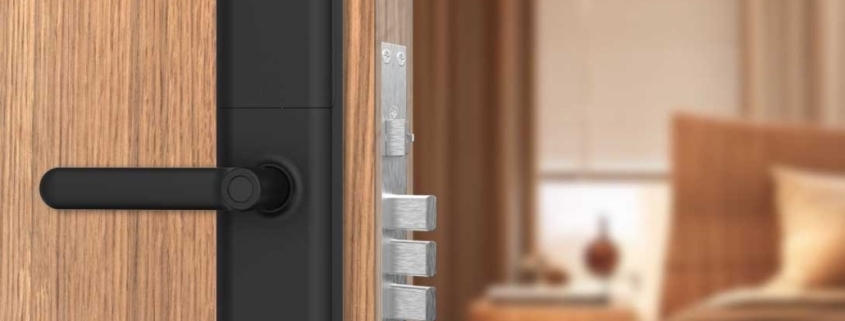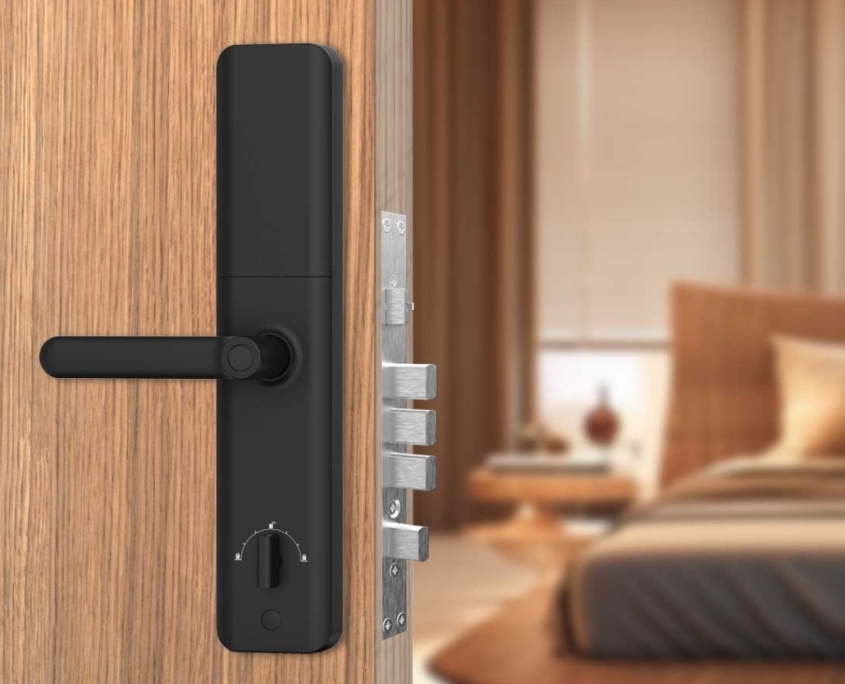Can You Put a Smart Lock on Any Door? What Homeowners Need to Know
Smart locks promise keyless convenience, remote access, and modern security—but before you buy one, you need to answer a critical question: Will it actually fit on your door?
While many homes can easily upgrade to a smart lock, not all doors are compatible. Factors like door material, lock type, and existing hardware play a major role. For example, installing a smart lock on a steel apartment door might require professional help, while a standard wooden house door could be a quick DIY project.
In this guide, we’ll break down:
- Which doors can (and can’t) support smart locks
- How to check your door’s compatibility
- Solutions for tricky installations
- Top smart locks for different door types
By the end, you’ll know whether your door is smart-lock-ready—or needs adjustments to join the 21st century.
What Types of Doors Work with Smart Locks?
Most residential doors in the U.S. are compatible with smart locks, but there are exceptions. Here’s a breakdown:
1. Standard Wooden Doors
- Best Case Scenario: Most single-family homes have wooden exterior doors with a standard deadbolt hole (2-1/8” diameter) and 2.4–3” thickness.
2. Metal/Steel Doors (Common in Apartments)
- Pros: Durable and secure.
- Cons: Harder to drill into; may require professional installation.
- Tip: Use a magnetic smart lock that attaches externally without drilling.
3. Glass Doors
- Challenge: No room for a traditional deadbolt.
- Solution: Opt for a smart handle lock (e.g., Yale Assure Lock SL) or a patio door lock (e.g., Danalock V3).
4. Double Doors or French Doors
- Problem: Requires two locks to secure properly.
- Fix: Use a dual-cylinder smart deadbolt or install smart locks on both doors.
5. Sliding Doors
- Risk: Vulnerable to forced lifting.
- Smart Option: Wyze Lock + a security bar for added protection.
Key Factors That Determine Compatibility
A. Backset Distance (Critical Measurement)
- What It Is: The distance from the door’s edge to the center of the deadbolt hole.
- Standard Backsets: 2-3/8” (common in U.S. homes) or 2-3/4” (older doors).
- Check: Measure with a tape measure. Most smart locks support both sizes.
B. Door Thickness
- Ideal Range: 1-3/8” to 2-1/4” thick.
- Too Thick? Some locks extend to fit doors up to 2-3/4”.
C. Existing Hardware
- Deadbolt vs. Handle Locks:
- Deadbolts: Most smart locks replace these.
- Handle Locks (with latch): Require a smart handleset .
- Mortise Locks (Common in Apartments): Rarely compatible with off-the-shelf smart locks; may need a custom solution.
D. Power Source
- Battery-Powered: Most smart locks use AA or lithium batteries. Ensure your door isn’t exposed to extreme cold/heat, which can drain batteries faster.
- Hardwired: Rare; requires professional electrical work.
When a Smart Lock Won’t Work (and How to Fix It)
1. Non-Standard Deadbolt Holes
- Problem: Oddly sized or positioned holes (common in historic homes).
- Fix: Use a retrofit smart lock that attaches over the existing deadbolt.
2. No Existing Deadbolt
- Problem: Doors with only a handle lock.
- Solution: Install a new deadbolt first (hire a locksmith if needed).
3. Ultra-Modern or Custom Doors
- Issue: Unusual materials (e.g., fiberglass) or designs.
- Fix: Contact the smart lock manufacturer for custom mounting plates.
4. Rental Apartments or Condos
- Landlord Rules: Many prohibit modifying doors.
- Workaround: Use a non-invasive lock that clips onto the interior side.
DIY vs. Professional Installation
When to DIY:
- You have a standard wooden door with a pre-drilled deadbolt.
- The smart lock is a retrofit model (no drilling required).
- Example: Installing an August Wi-Fi Smart Lock takes 10 minutes with a screwdriver.
When to Hire a Pro:
- The door requires new holes or adjustments.
- You’re dealing with metal, fiberglass, or custom doors.
- Cost: 100–300 for a locksmith or handyman.
Final Verdict: Yes, Most Doors Can Go Smart (With the Right Lock)
While 90% of U.S. residential doors can support a smart lock, always:
- Measure your door’s backset and thickness.
- Check your existing hardware (deadbolt vs. handle).
- Review landlord rules if renting.
For non-standard doors, solutions like retrofit locks, magnetic mounts, or smart handlesets can bridge the gap.
Pro Tip: Still unsure? Email the smart lock’s customer support team a photo of your door—most will confirm compatibility for free.
Have You Installed a Smart Lock?
- Did it fit easily, or did you run into issues?
- What lock would you recommend for tricky doors?
If you want to know more about smart locks, please leave a message in the comment area and contact us!










